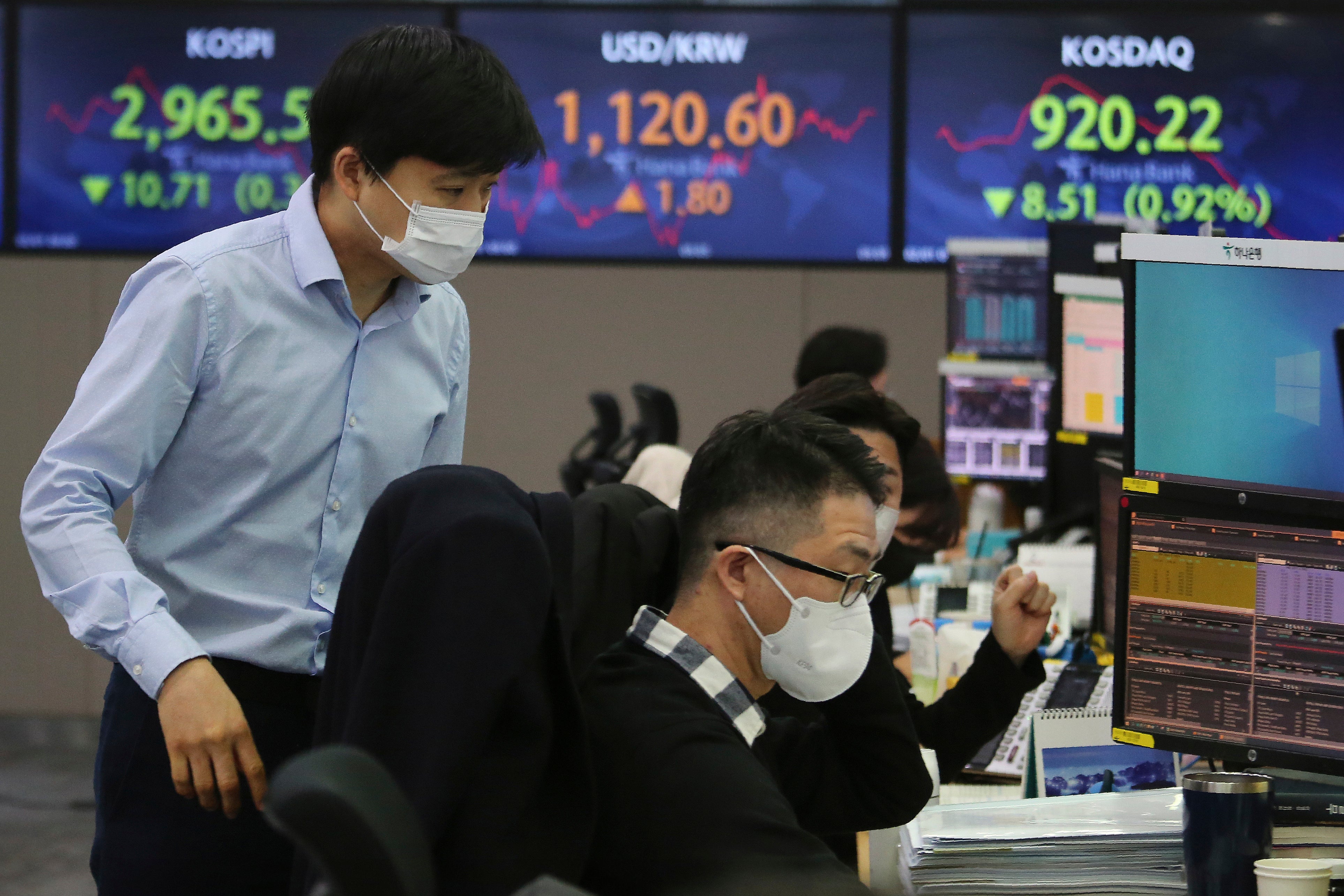Asian shares rise after vaccine maker boosts Europe supplies
Asian stock markets have risen after coronavirus vaccine maker AstraZeneca agreed to provide more doses to Europe amid rising worries about the disease

Asian stock markets rose Monday after coronavirus vaccine maker AstraZeneca agreed to increase supplies to Europe amid rising worries about the disease.
Shanghai, Tokyo, Hong Kong and Seoul advanced.
On Friday, Wall Street’s benchmark S&P 500 index lost 1.9% after GameStop, a video game vendor, and other shares were sent soaring by day traders. Investors said hedge funds that bet against those stocks were losing money and selling other shares.
Markets were rattled by AstraZeneca’s announcement it would supply the European Union with fewer than half the promised doses, which prompted the EU to impose export controls. On Sunday, AstraZeneca promised to increase European supplies and start delivery earlier.
“Concerns around the pandemic seemed to return in full force as vaccine distribution and efficacy issues re-emerged even with the virus spread gaining momentum,” said Mizuho Bank in a report.
The Shanghai Composite Index rose 0.1% to 3,486.46 and the Nikkei 225 in Tokyo added 1.4% to 28,041.27. The Hang Seng in Hong Kong gained 1.9% to 28,822.61.
The Kospi in Seoul surged 2.2% to 3,042.19 and Sydney's S&P-ASX 200 added 0.8% to 6,661.70.
India's Sensex opened down 0.2% at 46,759.42. New Zealand and Singapore declined while Bangkok and Jakarta advanced.
A purchasing managers’ index issued by business magazine Caixin declined to 51.5 from December’s 53 on a 100-point scale on which numbers above 50 reflect activity expanding. A separate PMI by the official statistics agency showed similar weakening.
The data suggest China’s rebound “is leveling off,” said Julian Evans-Pritchard of Capital Economics in a report.
Investors have bid up stocks in expectation the rollout of coronavirus vaccines would allow global business and travel to return to normal. That optimism has been dented by new infection spikes and disruptions in vaccine deliveries.
On Sunday, the EU announced AstraZeneca has agreed to supply 9 million additional doses of its coronavirus vaccine to Europe.
The new target of 40 million doses by the end of March is half what the British-Swedish company originally aimed for before it announced a shortfall due to production problems. The EU is behind the United States in vaccinating its 450 million people.
On Wall Street, anxiety mounted over the struggle between hedge funds and day traders over GameStop, AMC Entertainment and a handful of other stocks.
The S&P 500 dropped 1.9% to 3,714.24, giving the benchmark index its biggest weekly loss since October. The S&P 500 is still up 13.6% since the end of October.
The Dow Jones Industrial Average fell 2% to 29,982.62 and the Nasdaq composite lost 2% to 13,070.69.
Investors also are watching negotiations in Washington over President Joe Biden’s proposed $1.9 trillion economic aid package. Hopes for aid, along with the Federal Reserve’s pledge to keep low-cost credit plentiful, have carried the S&P 500 and other major indexes to record highs.
In energy markets, benchmark U.S. crude rose 21 cents to $52.41 per barrel in electronic trading on the New York Mercantile Exchange. The contract fell 14 cents on Friday to $52.20. Brent crude, the basis for pricing international oils, gained 34 cents to $55.38 per barrel in London.
The dollar declined to 104.70 yen from 104.75 yen. The euro edged lower to $1.2130 from $1.2132.
Subscribe to Independent Premium to bookmark this article
Want to bookmark your favourite articles and stories to read or reference later? Start your Independent Premium subscription today.
